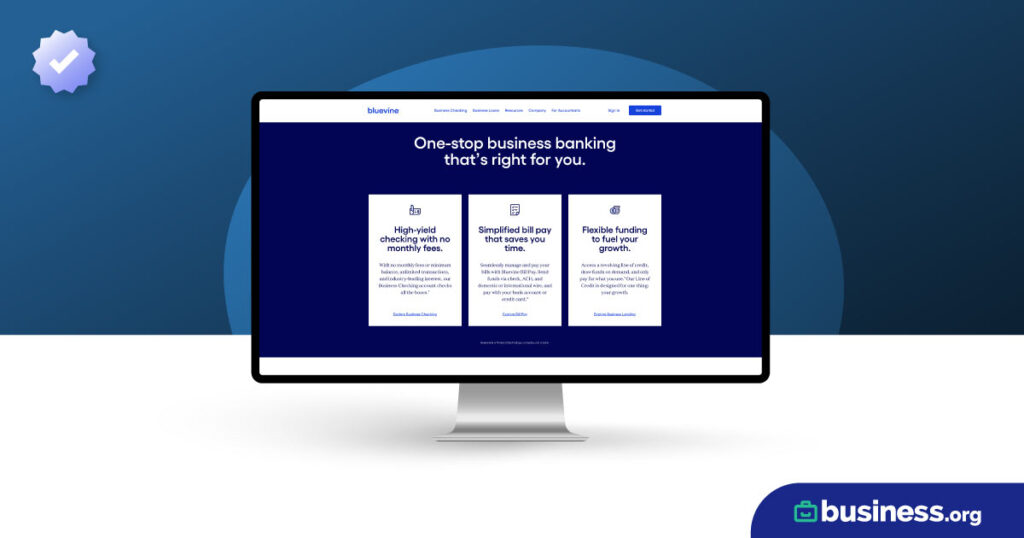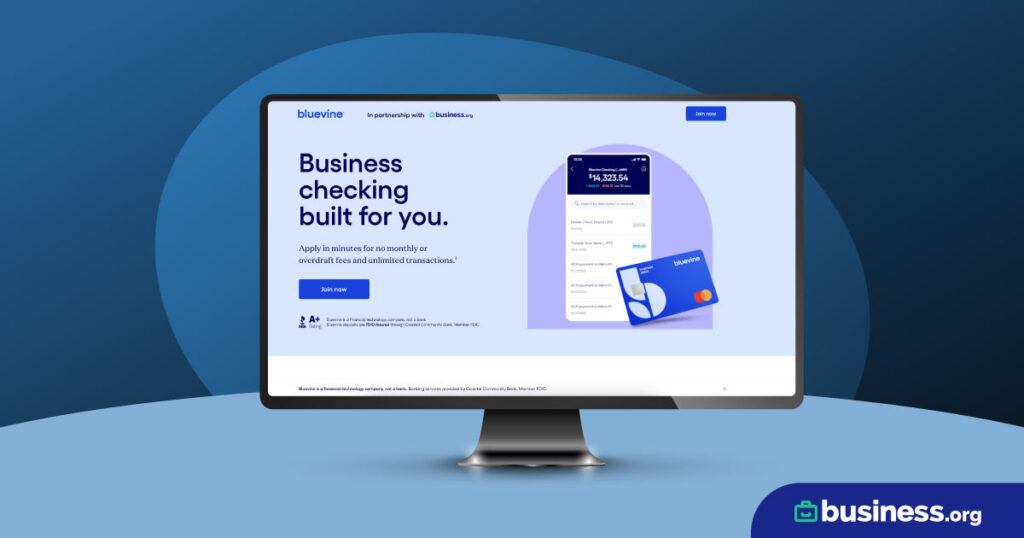We are committed to sharing unbiased reviews. Some of the links on our site are from our partners who compensate us. Read our editorial guidelines and advertising disclosure.
What Happens If You Can’t Pay Back a Business Credit Card?
Even careful borrowers can end up with difficult business credit card debt. If that happens to you, you could face everything from minor fees to the loss of your own assets.
So if you can’t pay back your business credit card balance, make sure you understand how to minimize the damage to your business and yourself.
That’s just what this guide will help you do. We'll explain exactly what happens if you can’t pay back your business credit card―and we’ll break down your best options for dealing with your debt and your credit card company.
Results of not repaying business credit card debt
As you can imagine, credit card companies don’t like it when customers don’t pay off their credit card balances. So if you can’t or don’t repay your business credit card, you’ll see consequences like these:
- You’ll have to pay late fee penalties. Credit card companies usually apply these penalties as soon as you miss a payment.
- Your credit card APR will increase. Your card provider may give you a much higher penalty APR (annual percentage rate). And unlike with personal cards, your business card APR can go up without warning.
- Your business credit score will take a hit. This will make it harder to get business credit in the future.
- Your personal credit will get damaged too. You’ll have a harder time getting both personal and business loans with a lower personal credit score.
- Your balance will be sent to collections. Expect to get lots of phone calls from debt collectors trying to get money from you.
- You may end up getting sued. Your credit card provider can take you to court to try to collect what you owe―which can put your business and personal assets at risk.
Put simply, when you don’t repay your business credit card, you may start off with just a simple late fee―but ultimately even your home, car, and other belongings can be taken.
With that in mind, you should take action as soon as you realize you can’t repay your business credit card. That way, you can avoid the worst consequences.
We’ll tell you about your options in just a moment. But first, let’s answer a couple common questions about business credit card liability.
Are you personally liable for an LLC credit card?
If you have an LLC, or a limited liability company, you may be wondering if your personal assets are still at risk. After all, LLCs are designed to limit your personal responsibility for business debts. So theoretically, an LLC should shield you from personal liability.
Unfortunately, there’s a very good chance you’re still personally liable for your LLC credit card―but it depends on the specific card you have.
See, credit card companies often make you sign a personal guarantee when you get a business credit card or loan. A personal guarantee makes you personally liable for your debt.
Not every credit card has a personal guarantee, so you can check with your credit card company to find out for sure if you have one. Most cards do, though―which is why it’s so important to deal with your business credit card debt right away.
Can credit card companies sue you?
If you don’t pay your credit card debt, then yes, your credit card company can sue you.
Note, though, that credit companies won’t sue you right away. First, they’ll typically go through these steps:
- Notify you of late charges on your credit card
- Increase your interest rate with a penalty APR
- Close your credit card
- Send your debt to collections (either in-house or a third-party company)
In most cases, a credit company won’t sue you for payment until at least six months have passed. So again, take action before that point.
By signing up I agree to the Terms of Use and Privacy Policy.
First steps when you can’t repay your business credit card
Got business credit card debt and don’t know what to do?
Even if you’re already missed some credit card payments, your first step should be to try to repay your debt. Look for ways to free up working capital or get more cash flow. For instance, consider these strategies:
- Look for places to reduce spending in your budget.
- Ask clients to pay their invoices sooner.
- Try to boost profit, perhaps by raising prices.
- Use any business savings to tide you over.
- Draw from personal savings to get back on your feet.
But let’s assume you’ve done all that, and you still have debt you can’t repay. You’ll need to decide how to handle your business credit card debt.
And while we know this is stressful, remember: The sooner you deal with your debt, the more options you have.
How to deal with business credit card debt
When you really can’t pay off your business credit card balance, you should start looking at other options.
Here are four ways to take care of your business credit card debt.
Get a balance transfer credit card.
If you haven’t taken a big hit to your credit score yet, you can try to get a business credit card for balance transfer.
These cards let you pay off your existing credit cards by, well, transferring the balance to your new card.
But you’re not just shuffling around debt. The best balance transfer credit cards give you 0% APR for a while―often a year or more. That gives you time to find money to pay off your credit card without worrying about accruing more interest. You can use a credit card marketplace, like Nav’s, to compare your best options.
Plus, this method keeps your account from going to collections―which also keeps you from getting sued. Just keep in mind that you will need a plan to pay off your whole balance by the time your promotional APR period ends.
Refinance with a business loan.
Instead of getting a balance transfer credit card, you can try to refinance your business debt with a business loan.
When you refinance, you use the loan proceeds to pay off your old debt. Then, you’ll make loan payments to your new lender instead of your old credit card company.
Business loans usually have much lower interest rates than credit cards do, and they often give you longer to repay your debt. But this method does require you to eventually pay back everything in full, so make sure you can do that.
And like getting a balance transfer credit card, refinancing with a loan works best before you miss a lot of payments and damage your credit score. A higher credit score increases your odds of getting approved for a loan and getting a good rate.
So if you plan to refinance, do it ASAP.
Negotiate with your credit card provider.
If balance transfers and refinancing aren’t options, you can try to settle with your credit card company instead.
When you settle with your lender, you negotiate to pay a smaller amount (often as a lump sum) than you actually owe. It’s an okay deal for you, because you pay less overall. And lenders agree to it because at least they get some money instead of none.
That said, settling your debt will probably damage your personal and business credit score. And of course, you will still have to pay back some of the debt.
Declare bankruptcy.
When you really can’t pay back your business credit card, you may have to declare bankruptcy. While it’s not a fun option, bankruptcy can help clear your slate and even protect your assets.
If you’re thinking about bankruptcy, make sure you speak with an attorney. Bankruptcies are not one-size-fits-all solutions. There are different kinds of bankruptcies with different results. (Some still make you pay back debts, for example.) So you absolutely want to get professional help to navigate bankruptcy.
Don’t forget that bankruptcy can keep you from borrowing in the future. It could still be a good solution for you―but make sure it’s your best option before going down this route.

Want affordable banking with great perks? With Bluevine, you can get a fee-free business checking account―and you can even earn up to $5,000 in interest.
The takeaway
When you can’t pay back your business credit card, you face consequences ranging from late fees to credit score hits to losing your personal assets. So if at all possible, do whatever it takes to pay off your credit card balance.
If you really don’t have the funds to repay your credit card, you still have options. You can transfer your card balance, refinance with a loan, settle your debt, or even declare bankruptcy.
Just remember that the sooner you take action, the better.
Once you handle your business credit card debt, rebuild your business credit with a low-risk secured business credit card.
Related reading
Repaying business credit FAQ
Your business lender will tell you exactly how to pay back business credit. You’ll get a repayment schedule, minimum payment amounts, and info on all options for making payments (such as ACH transfer or sending a check).
How long you have to pay back a business credit card depends on your credit card provider and specific card. Some credit cards require you to repay your balance in full each month, while others let you carry a balance indefinitely as long as you make minimum payments each month.
In most cases, business owners are liable for their business credit cards. Credit card companies usually require personal guarantees, which make business owners personally responsible for their credit cards.
If a business can’t pay its bills, it should expect late fees, canceled services, and calls from collections. In some cases, creditors may even sue and go after the business’s assets.
Disclaimer
At Business.org, our research is meant to offer general product and service recommendations. We don't guarantee that our suggestions will work best for each individual or business, so consider your unique needs when choosing products and services.




